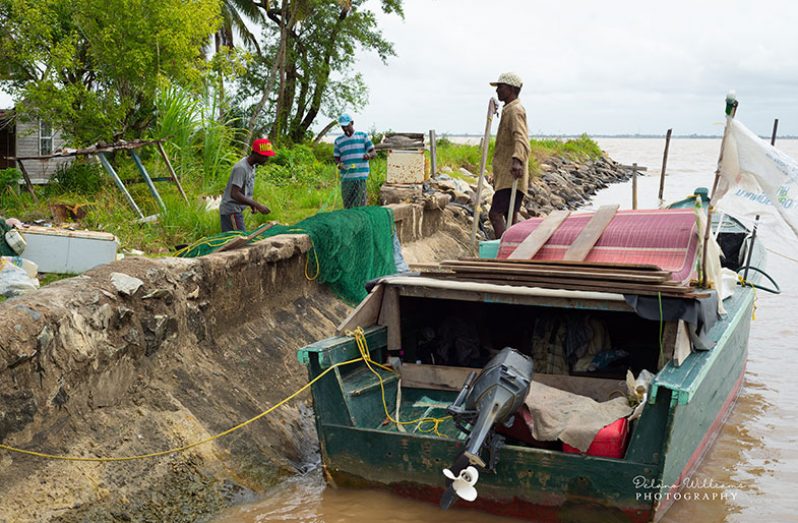This week on Focus on the Village, we bring you stories from the island of Leguan, located in Region Three (Essequibo Islands/West Demerara).
Stories by Telesha Ramnarine and photos by Delano Williams.
THE picturesque island of Leguan on the Essequibo River is home to roughly 2,500 persons. As such, everybody knows everybody! People are generally warm, friendly and most hospitable to one another – even to visitors on the island!
There are a whopping 36 villages on the island, although some are hardly populated. La Bagatelle and Maryville were touted to be the most populated villages, on what many people consider to be the front of the island. Canefield, to the east, is said to be the least populated village.
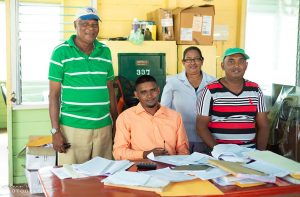
The primary mode of transportation on the island is the pedal cycle, but many persons also own motorcycles. A small group of people have vehicles; and there are taxis, buses, and horse-drawn carts that are up for hire.
Ironically, while the main religious persuasion on the island is Hinduism, there are 14 churches and one Kingdom Hall on the island, which represent more than double the number of mandirs (Hindu temples) there. There are also five mosques (Muslim places of worship) on the island.
Leguan is a predominantly rice farming island, and almost every household has a fishing net (a net that is thrown out and immediately drawn in, rather than being set up and left). As such, it is difficult for families to go a day without having anything to eat.
“Everyone has their cast net; you can just jump in the trench and catch a couple of fish or throw for shrimp. If there’s nothing in the pot, you just go in the back-dam and catch some fish or shrimp,” Saheed Ayube, a 30-year-old Leguan ranger expressed.
He is quite comfortable on the island, but he told the Pepperpot Magazine that he is hoping for more employment opportunities to be opened up for youths his age, as jobs are hard to come by on the island.
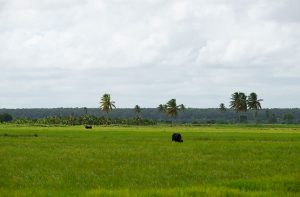
“Life is good,” says Viren Chintamani, who is the Head of the Agricultural Department at the Leguan Secondary School. “You can make a living here with farming, fishing; it’s easy life. You can sleep peacefully on the island; it’s a good place to live. You can leave your door open and sleep at nights.”
Notwithstanding, Chintamani said there are a few mischief makers who might steal a fowl or some other minor item. Certain other things are also popular on the island, such as two young lovers ‘getting away’ together.
APNU Councillor Derrick Singh, uttered similar sentiments when he noted that the island hardly has thieves. “Life is very peaceful on the island. You can sleep with your house open 24/7; you’d probably only have to worry about a dog or cat coming in your house. We don’t have stealing on the island; break and enter. Generally, life on Leguan is very, very comfortable; very nice. If you love the quiet life, Leguan is the place to be,” Singh expressed.
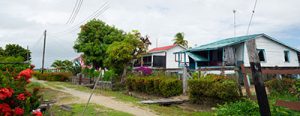
The island is sorely in need of a mini excavator at the moment so as to aid drainage in the residential areas. A request for such an excavator had been put forward sometime now, but no response has been forthcoming.
LOSING YOUNG PEOPLE
“Life is reasonably stable on the island. Generally, people are very nice to each other,” Singh said, but even the best of friends might have disagreements when it comes to elections time.
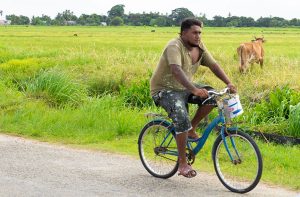
One of the major issues plaguing the island, is the migration of its young people after they would have completed their secondary education.
Because the youths have very limited opportunities available to them on the island, many leave after school to further their education or seek employment. “Once they get caught up in the Georgetown situation, they don’t want to get back to the island,” Singh said.
Many of the business people in Leguan focus on selling alcohol, perhaps because such a business does well financially. But Singh believes that if such persons expand their business focus, some of the current problems facing the island may be reduced.
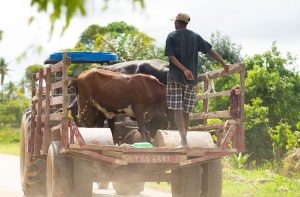
“Many business people only think about opening up rum shops; they don’t go further. They look at it as the rum sells. So the young men who don’t work, or who work only in the rice fields during crop season; when the crop is out, they have nothing to do.”
In addition, the use of ganja is slowly creeping its way into the island. It has been thought that speedboat operators may need to look at having one drop off spot, after leaving Parika. Because persons ask to be dropped off at various areas on the island, it is hard for anyone to keep track of what they’re bringing to the island.
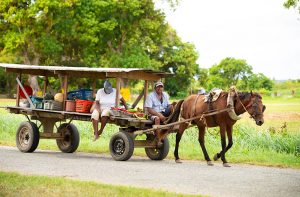
“So if you’re carrying the drugs, there’s no police check for you at these locations. But if the speedboats come straight to the stelling where there’s a police officer, it would be easier to know who is bringing what. And the thing about the island is that if you’re a stranger, you’re easily picked out,” the councillor observed.



.jpg)






